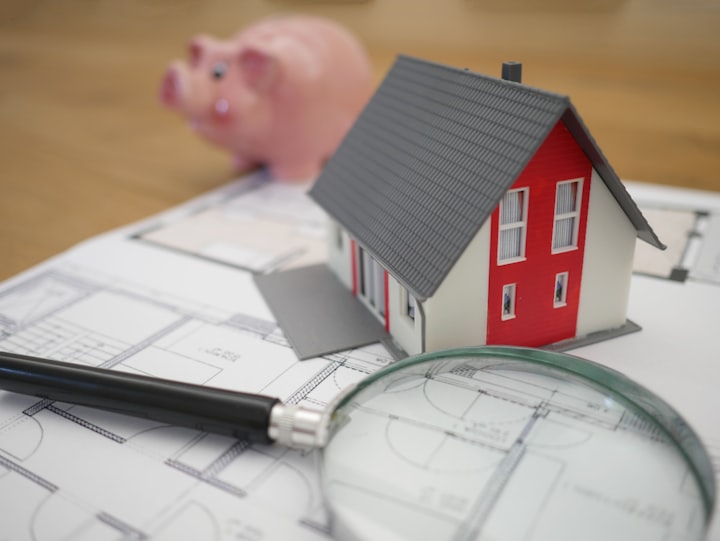
Today we will be discussing the cost of living in the USA. We will compare the highest to the lowest cost and find out what it’s like to live there. So, let’s get started.
The Cost of Living
The cost of living in the United States varies between each state. It is the amount of money you need to sustain a certain standard of living that includes housing, food, taxes, and healthcare. These are things you are guaranteed to buy no matter where you live. There is a strong correlation between a state’s cost of living and per capita personal income.
The cost of living differs between states depending on how far the dollar goes in that state. This can be seen in housing costs especially. According to Wall Street, a dollar spent on rent in Arkansas is worth $1.58 in value, while a dollar spent on rent in Hawaii is worth $0.61.
The cost of living index is based on the US average of 100. Any amount below 100 means that the cost is below the nation’s average, and any amount above 100 means that the cost is higher than the nation’s average. The lower the number, the further the dollar goes for that cost.
Most of the states with the lowest cost of living are in the South, while those with the highest costs of living often have some of the nation’s largest urban clusters. Generally speaking, states that have a smaller portion of residents living in cities see the dollar go further.
The Cheapest State
Can you guess which state is the cheapest? If you named Mississippi as the cheapest state, then you are correct. Mississippi’s cost of living index is 86.1 and has the lowest overall housing cost index of all 50 states. Being cheap doesn’t mean that it’s a bad place to live, but that depends entirely on how you look at it. Well, let's see what is going on in Mississippi.
You might have had a problem spelling the name, just know it’s double Ss’ and double Ps. It is named after the river, which means “large river” to the Chippewa Indians. Mississippi is known for its fertile land, with magnolia flowers and warm weather, among other things.
Overall, the average cost of living is about 19% lower than the national average. Mississippi’s living wage is only $48,537 and has the cheapest personal necessities anywhere in the country. Housing costs about $795 a month, and childcare is the cheapest in the country, costing about $2,869 a year. Food, health care, and many other necessities are among the least expensive in the nation as well. But being less expensive it’s always a good thing. Mississippians are accustomed to being labeled the worst by the rest of the country. They're even used to hearing it from their Southern neighbors, who say “Thank God for Mississippi!” for keeping them off the bottom of national tables.
The weather is not for everyone and it’s a big reason why people are not interested in living there. The temperature usually ranges between 48 °F and 81 °F. Usually, the weather is hot and humid with heavy rainfalls and frequent thunderstorms, hurricanes, and tropical storms. It often rains in a downpour, which lasts for a short while, and then it’s bright and sunny all over again. The beginning of autumn is when the hurricanes usually hit. The best part is that winters are short and mild. It rarely frosts up and snows.
However, the areas near the Mississippi Sound are warmer because the water retains the heat from the summer season. The precipitation increases from north to south, with the areas near the coast being the most humid. Mississippi averages around 27 tornadoes per year with the northern part getting storms earlier in the year. Hurricane Katrina was the deadliest to hit the state in 2005. But is it really the climate that keeps the cost low? Or is it something else?
The Most Expensive State
On the other side of the scale is the most expensive state in the US. Can you guess which state? If you said California, you would be wrong. It’s the beautiful islands of Hawaii. But what makes Hawaii so expensive?
Hawaii is a paradise. There are a number of cities in Hawaii that offer a perfect place to call home. Especially If you’re a nature-lover, you’ll feel right at home. Birds, whales, turtles, and tropical fish are all present in the Aloha State and you can get out on the water or into the mountains for an up-close and personal view of the wildlife. But you might not need to go out of your way to see the wildlife. You might have birds you’ve never seen before on the trees in your backyard or drive past turtles on your way to work. Don't forget the Hawaiian sunsets. Sunsets are a daily and free source of entertainment on the islands. Expect your Instagram to fill up with beautiful sunsets that will make your mainland-dwelling friends desperate to visit you.
But the cost of living in Hawaii is high. That goes for housing costs, but it also applies to the food on grocery store shelves. And Hawaii is a high-tax state meaning that income tax rates are among the highest in the country. Plus, everything that has to be shipped or flown to the islands will cost a lot more than normal.
The “middle class” in Hawaii lives at what their mainland counterparts would consider poverty levels. Many families work several jobs, live paycheck to paycheck, have substandard (by mainland comparison) housing conditions, very little expendable income and at any moment are living on the financial edge.
Put it simply, you need to be earning at least $150k a year to have what on the mainland can be had for $75k/yr. And if you have a larger family, you’ll need more and possibly a lot more income.
If you’re going to live in Hawaii, you need to be prepared to live a lifestyle of comparative poverty. If you can stay here for the long term you can work your way up, but on day one, be prepared to live a vastly downgraded lifestyle. Unless you’re already a multi-millionaire.
If it costs money, it will cost a lot more than you’re used to paying. Nothing here is cheap. Even locally produced goods cost a ton more. One interview with a local cattle rancher revealed that it’s cheaper to ship calves from Hawaii to the mainland, raise them there, then ship them back for the slaughterhouse than it is to raise them on Hawaiian lands.
If you can’t buy it in the stores, you’ll have to ship it. Amazon’s free shipping has been a godsend for Hawaii but not everything is on Amazon, at least not yet, so for any special-order items, you’ll have to wait a long time and pay a whole lot of shipping costs. And even on Amazon, there are many items that only ship to the “Continental United States” which means Hawaii is out of luck.
Why are things so expensive here? It’s not because everything has to be shipped in, which it does, but rather a cocktail that consists of:
● High real estate prices (which affects warehouse and retail costs)
● High government overhead such as taxes and regulations
● Low competition
● Higher than normal shipping costs due to the Jones Act which requires that all shipping from the US mainland arrives on US-flagged ships.
Hawaiian islanders get used to it until they go to the mainland for a trip and only then realize the “Paradise Tax” that they have to pay. Visitors to Hawaii need only take one trip to the grocery store or any restaurant to experience the extreme sticker shock that the islanders have just come to accept.
Conclusion
If you want your money to stretch further, then you might want to consider moving to the South. But, if money isn't an issue, then states like Hawaii, New York, and California are good places to live.
About the Creator
Victoria
I write content based on my interests and life experiences. Let me know if you enjoy my content!






Comments
There are no comments for this story
Be the first to respond and start the conversation.